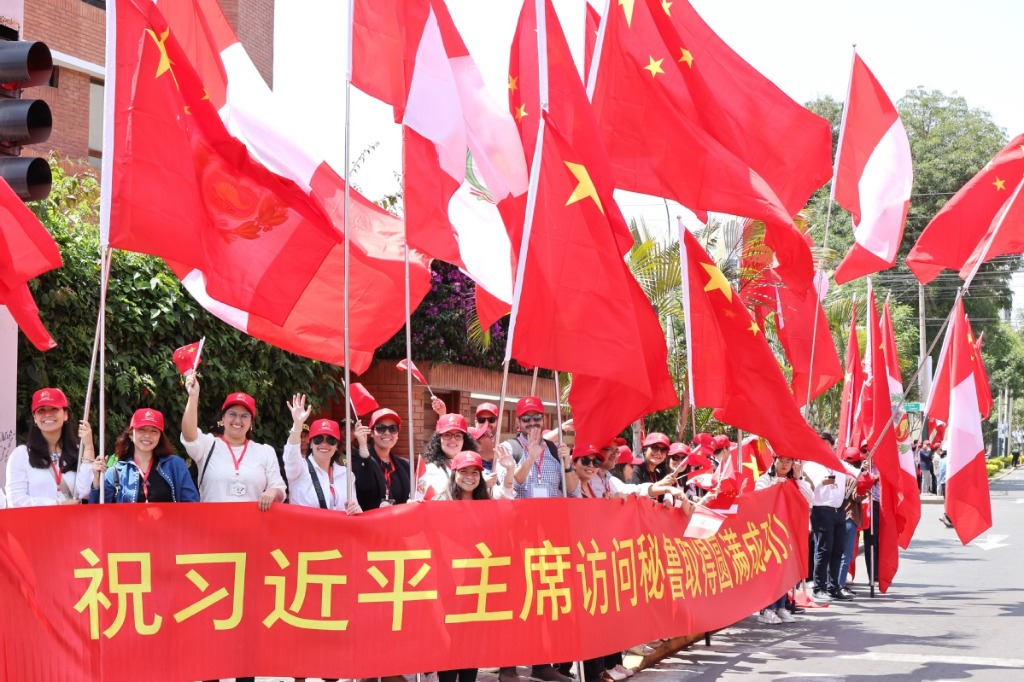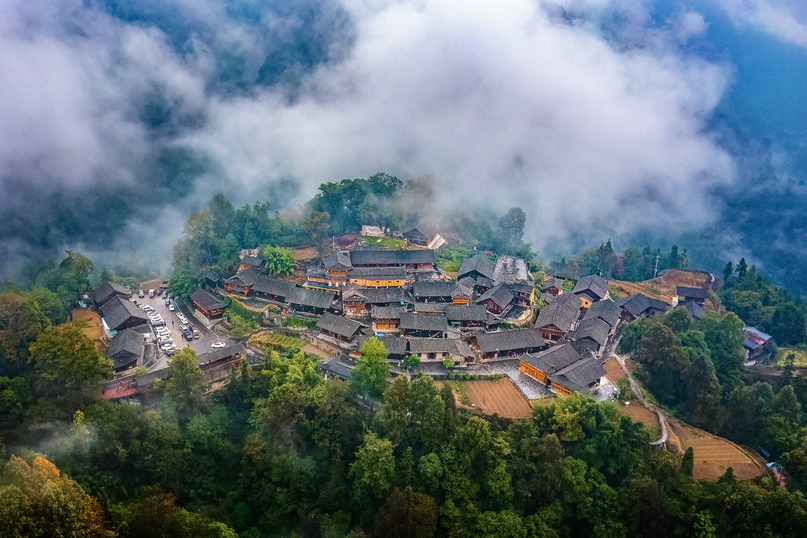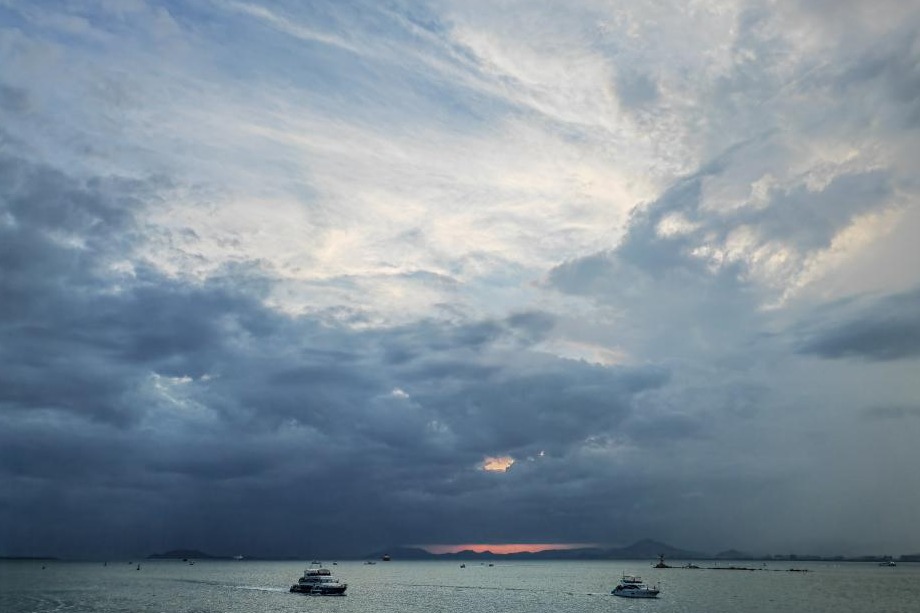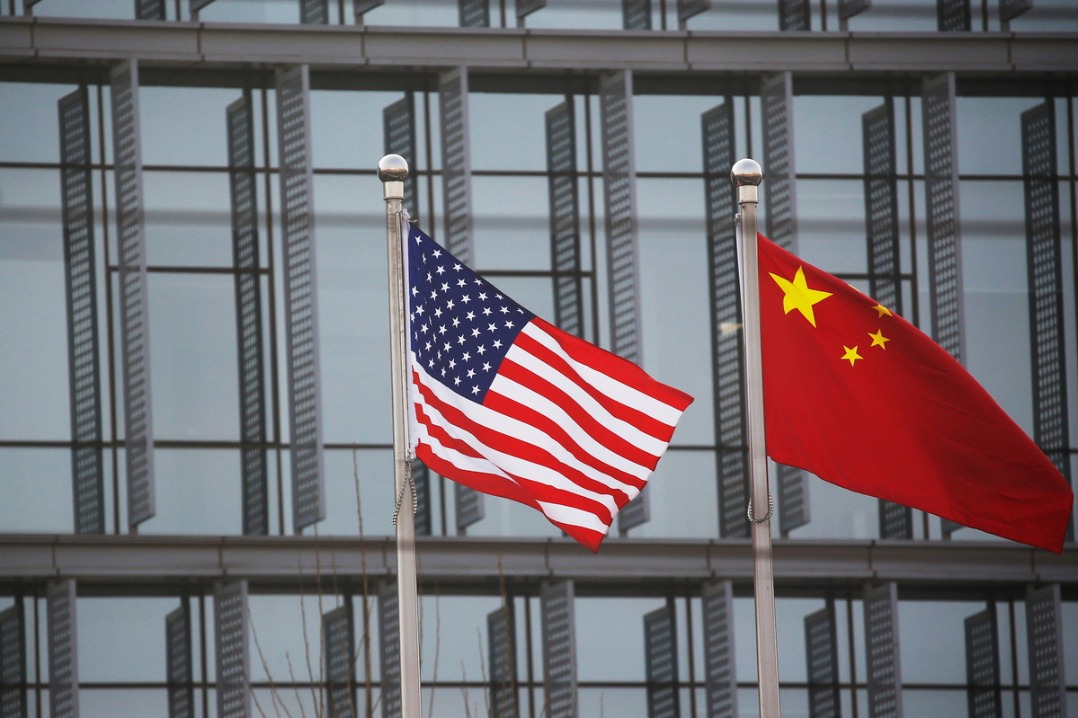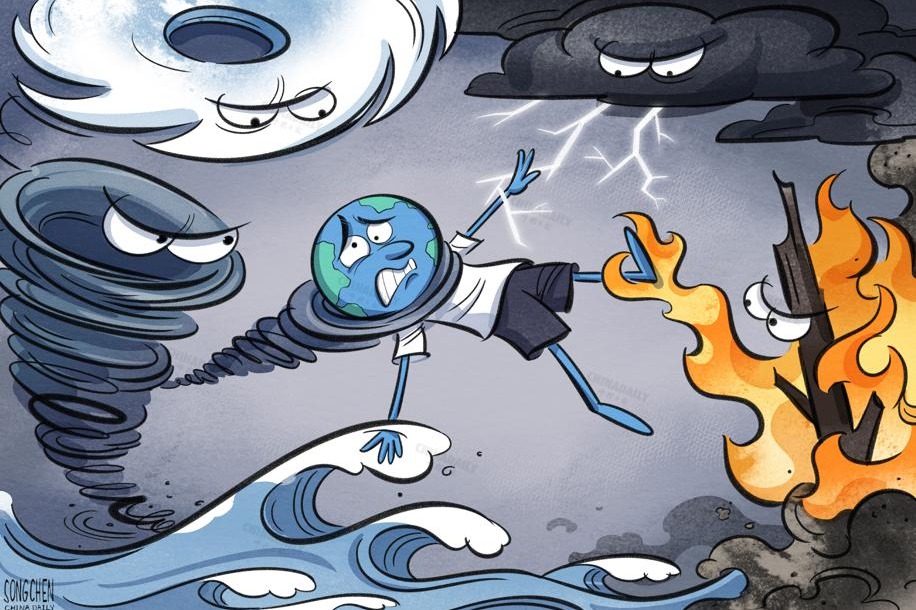The true history of the South China Sea requires a commitment to revealing facts rather than tailoring narrative

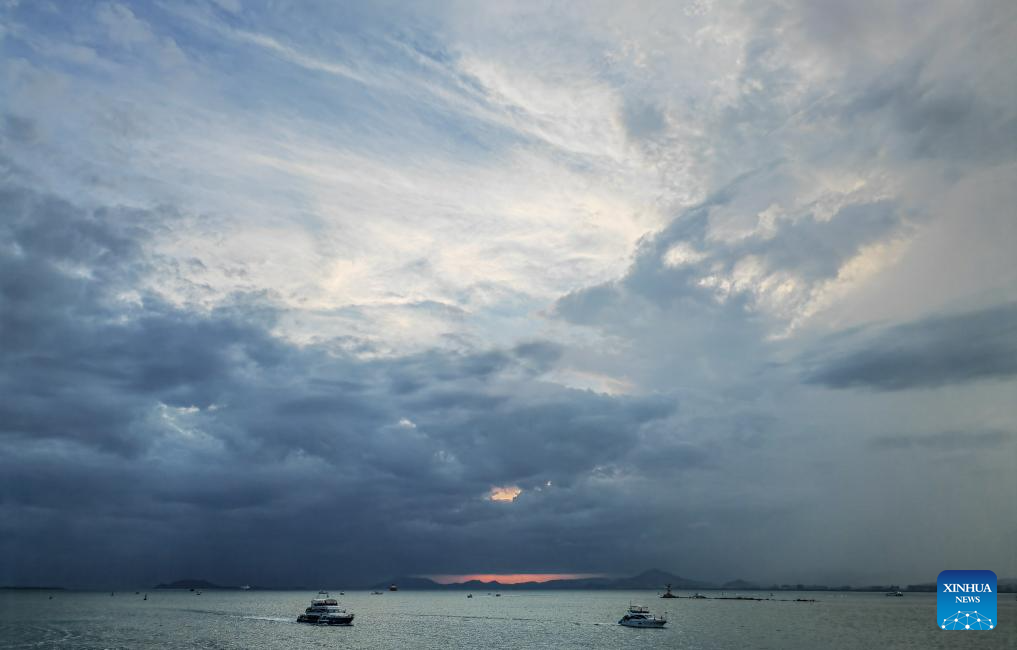
Recently, Indonesian scholar Mahbi Maulaya published an article on the Lowy Institute Interpreter, offering a critical assessment of a seminar held by a private think tank in China in June 2024. He has criticized the seminar and accused Chinese scholars of “being urged to give a forceful response to false narratives to strengthen their nation’s claims in the South China Sea.” He has warned that “the gathering of Chinese historians in June, with urging to craft narratives around China’s ownership of the South China Sea, should not be underestimated. It is crucial to consider the potential outcomes of China’s proposed strategy.” Additionally, he reiterated that “the 2016 international tribunal decision concluded that there was no legal basis for China’s historic rights claim”, a cliché that has been repeatedly hyped by some countries.
The seminar mentioned in the article is titled History and Law of the South China Sea, and was held in Haikou on June 25, 2024, hosted by the Huayang Center for Maritime Cooperation and Governance. The participants included not only Chinese scholars, but also international experts. During the seminar, British historian Anthony Carty highlighted that British and French archives have provided evidence that China had clearly declared its sovereignty over the Xisha Islands in 1909. Although the sovereignty of the Nansha Islands is more complicated, British archival materials can support China’s claim to sovereignty over the Nansha Islands, and French archives clearly indicate that Vietnam’s and the Philippines’ sovereignty claims are not established. US archives also do not support the Philippines’ claim to the Nansha Islands.
It should be noted that Chinese scholars have an advantage over non-Chinese scholars in objectively restoring the history of the South China Sea, due to China’s richest and most detailed collection of historical materials, which serve as a foundation for understanding the true history of the South China Sea. Rather than tailoring the history, Chinese historians have made significant efforts to collect and compile the historical materials related to the South China Sea since the early twentieth century, recognizing the importance of these historical sources in revealing historical facts.
The initial endeavour to collect and compile sources of the South China Sea began following the Dongsha Islands Incident in 1907, when the Japanese attempted to illegally occupy the Islands. The Qing government organized scholars to gather historical archives and maps as evidence of China’s sovereignty over the Islands. These materials, together with other materials about the later incident of Japanese businessmen’s attempt to steal resources on Xisha Islands through a Chinese merchant He Ruinian, were compiled by Chen Tianxi in 1928 into A Compilation of Materials Concerning the Xisha and Dongsha Cases, which provides detailed information in terms of geographical location, longitude and latitude, traffic mileage, size, natural resources, history, administration in forms of diplomatic telegrams, documents, maps, etc.
Several years later in 1933, when France occupied nine small islands in the Nansha Islands, the ROC government immediately organized personnel to collect relevant historical documents to confirm China’s sovereignty over the islands. These documents supported China’s “verbal war” with France through diplomatic notes that lasted for many years after.
A growing number of source materials and related research have been published after the establishment of PRC, including Collection of Historical and Geographical Research on the South China Sea Islands, Compilation of Historical Materials of South China Sea Islands, South China Sea Islands: Geography, History, and Sovereignty, etc., supporting China’s sovereignty over the South China Sea Islands in various dimensions. Two bibliographic studies provide references confirming China’s sovereignty and maritime rights over the South China Sea from a perspective of philology: Index of Historical and Geographical Works on Hainan and the South China Sea Islands and Index of Materials on the South China Sea.
Based on previous accomplishments, Chinese scholars have devoted many efforts in recent years to analysing the claims on South China Sea raised by Vietnam, the Philippines and other claimants, as well as the so called “l(fā)egal and historical evidence” supporting the claims. According to a statistical survey of research articles papers published on core Chinese journals from China National Knowledge Infrastructure (CNKI), approximately 220 articles directly focusing on the history of South China Sea from Vietnamese or Philippine perspectives by Chinese scholars. Many of these articles have rigorously identified flaws in Vietnam’s and Philippine’s claims and their evidence, supported by comprehensive analysis across multiple disciplines, methodologies and sources.
Despite such substantial research output, it appears that China’s academic contributions are overlooked by the international community. Furthermore, there is an overwhelming amount of criticisms from the international community directed toward China compared to Vietnam and the Philippines regarding their positions on the South China Sea issue.
This can be attributed to several factors.
Firstly, language has consistently been a serious barrier hindering the international recognition of Chinese academic research. Within the Anglophone world, accessing and understanding Chinese-language sources and research is challenging for scholars. Even world-known historians lacking proficiency in Chinese language and historical sources, can only offer their narratives of the South China Sea history that are rife with subjective speculations and inferences without consultations of Chinese sources.
Secondly, underlying the language barrier is the ideological arrogance prevalent in the international academia. Certain scholars, influenced by a Western-centric perspective, struggle to accept the oriental model of historical evolution. When it comes to the Chinese history, they tend to apply the model of Western colonisation and occupation of territories to explain Chinese historical practices, thus leading to distorted conclusions. The Western model of territorial acquisition, which has evolved into an international law paradigm recognized by Western powers, but is essentially a model of global aggression and occupation of indigenous territories.
Thirdly, scholars from Vietnam and the Philippines excel at leveraging international forums and digital publications to take the lead. Their tailored interpretations of the South China Sea history have gained widespread circulation and international support through exhibitions, forums, and conferences, which have created a platform matrix for expanding the dissemination and influence of their research. The Annual South China Sea Conference by Vietnam and Cartographic Exhibit by the Philippines serve as typical examples.
Fourthly, a disputed South China Sea, either in reality or in literature, serves the interests of certain major powers outside the region. As a result, international media, platforms and academic journals dominated by Anglophone states tend to favour the discourses that provoke tensions, conflicts and contentions in the South China Sea. Moreover, the discourses and narratives often exaggerate the situation in the region, contributing to a distortion of the historical truth and an amplification of the disputed aspects of the South China Sea.
Exploring the truth of the South China Sea under the veil of Western narrative reveals that its origins can be traced back to the colonial occupation by powers such as France and Japan rather than disputes between China and the neighbouring states. Without colonisation, the people around the South China Sea would still be living and working peacefully on these islands and waters.
Stigmatizing the work of Chinese historians as “tailoring narrative” reflects a very distorted phenomenon in the western shaped international community, namely the politicization of historical narrative. Some so-called well-known figures, such as Bill Hayton, who are unable to speak Chinese, or to read Chinese historical sources, have approached their research with the aim of refuting China rather than revealing the historical truth. Otherwise, it is very difficult to explain why the international community favours such amateur research and review as the golden rule of South China Sea studies, but turns a blind eye to the truth and facts that are convincingly supported by archaeological discoveries and by the professional and rigorous scholarship such as Antony Carty.
The outcome of tailoring history of South China Sea by some scholars, including above-mentioned Bill Hayton, has resulted in a distorted portrayal of facts and lies of the South China Sea prevailing in the international community. For instance, the historical fact that Japan explicitly returned the Xisha Islands occupied during World War II to China in 1952 supported by official diplomatic archives and international treaties has been unfortunately covered by historical lies that Japan renounced its title to the islands which reverted to being terra nullius because title was not explicitly passed to another state. Historical fact that Vietnam has no convincing historical evidence proving its sovereignty over the Xisha Islands has been unfortunately covered by historical lies that Emperor Gia Long of Nguyen Dynasty raised the flag on Xisha. The historical fact that China claimed the sovereignty over the South China Sea islands has been unfortunately covered by the historical lie that China made its first sovereignty claim to the South China Sea islands in 1947, and the southernmost point on official maps of the Qing Dynasty was Hainan Island.
As such, Chinese scholars should not expect for another “Joseph Needham” who understood China and write China from a very professional perspective, but should take the initiative to advocate a multi-centric approach. Solutions rely on how to reveal the historical truth of the South China Sea, how to provide multiple research perspectives, and how to promote international public opinion to seek truth from facts. In this regard, it is essential to call Chinese historians to actively integrate into the international academia and to actively cooperative with scholars from other countries to present the truth facts of the South China Sea history to the international community. A routine academic seminar of Chinese historians was viewed by Mahbi Mawlaya as a signal of a “historical war”, which further illustrates the importance and urgency of accelerating the internationalization of Chinese historians’ research results on the South China Sea issue.
Xu Xiaodong is an adjunct researcher at Huayang Center for Maritime Cooperation and Ocean Governance; Liu Yajing is pursuing her MA at Huaqiao University. The authors are grateful for the advices by Dr Liu Yanhua at National Institute for South China Sea Studies.
The views don't necessarily reflect those of China Daily.
If you have a specific expertise, or would like to share your thought about our stories, then send us your writings at [email protected], and [email protected].



















